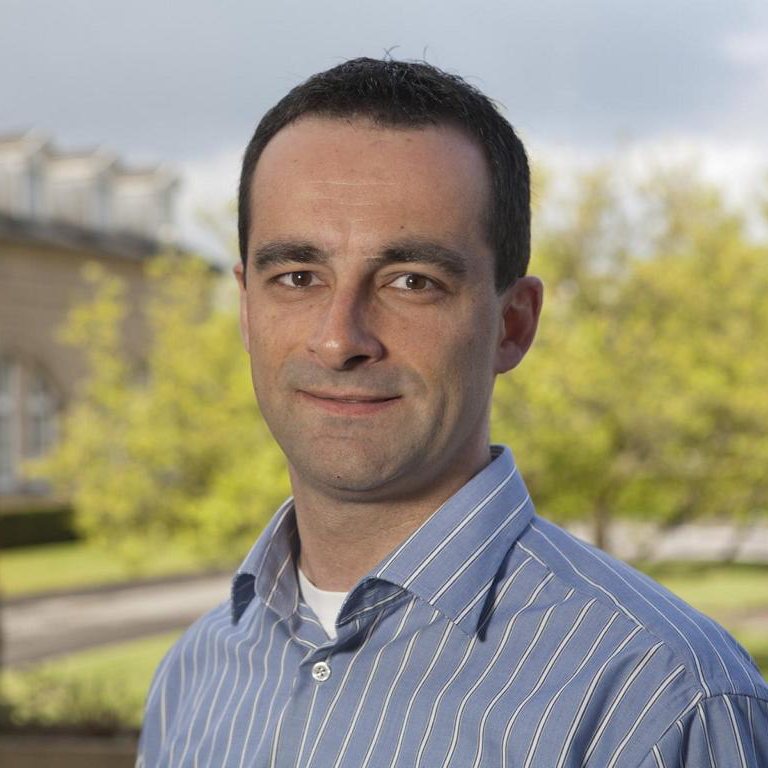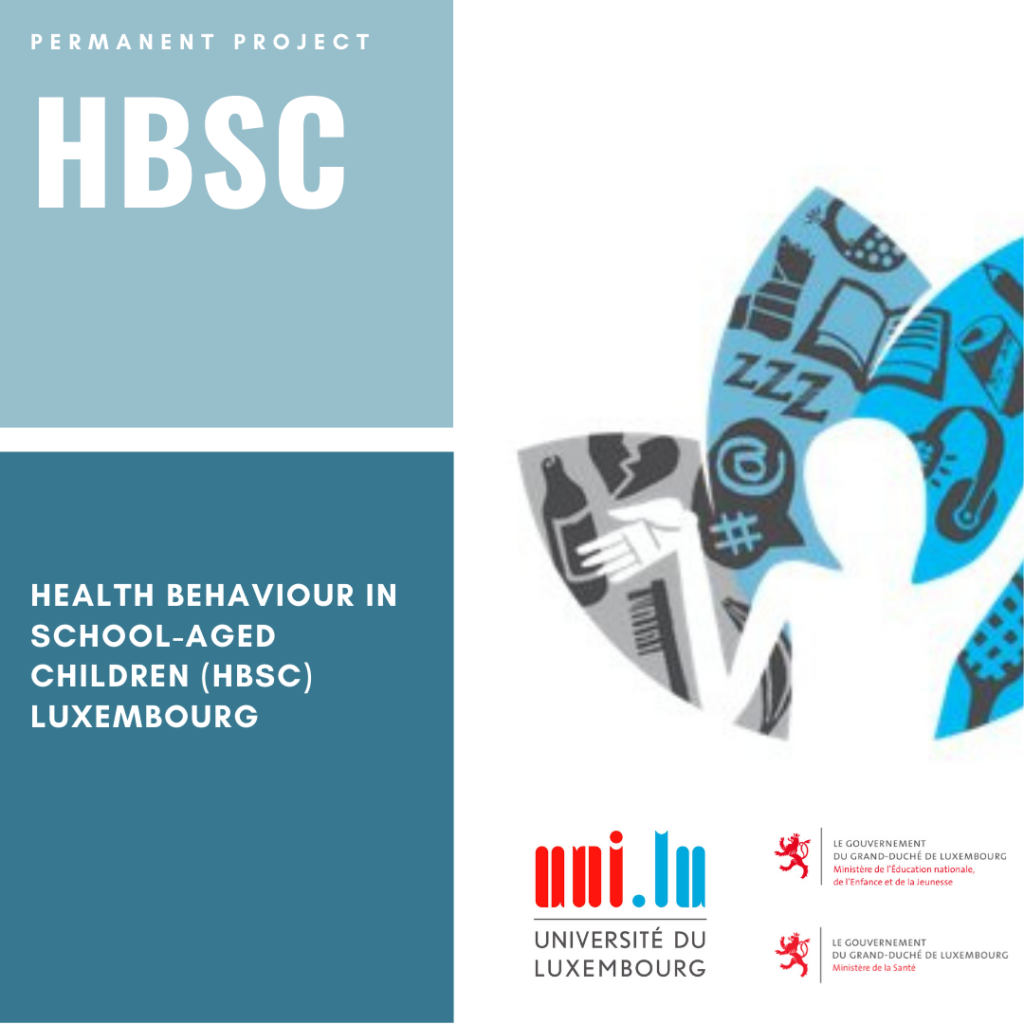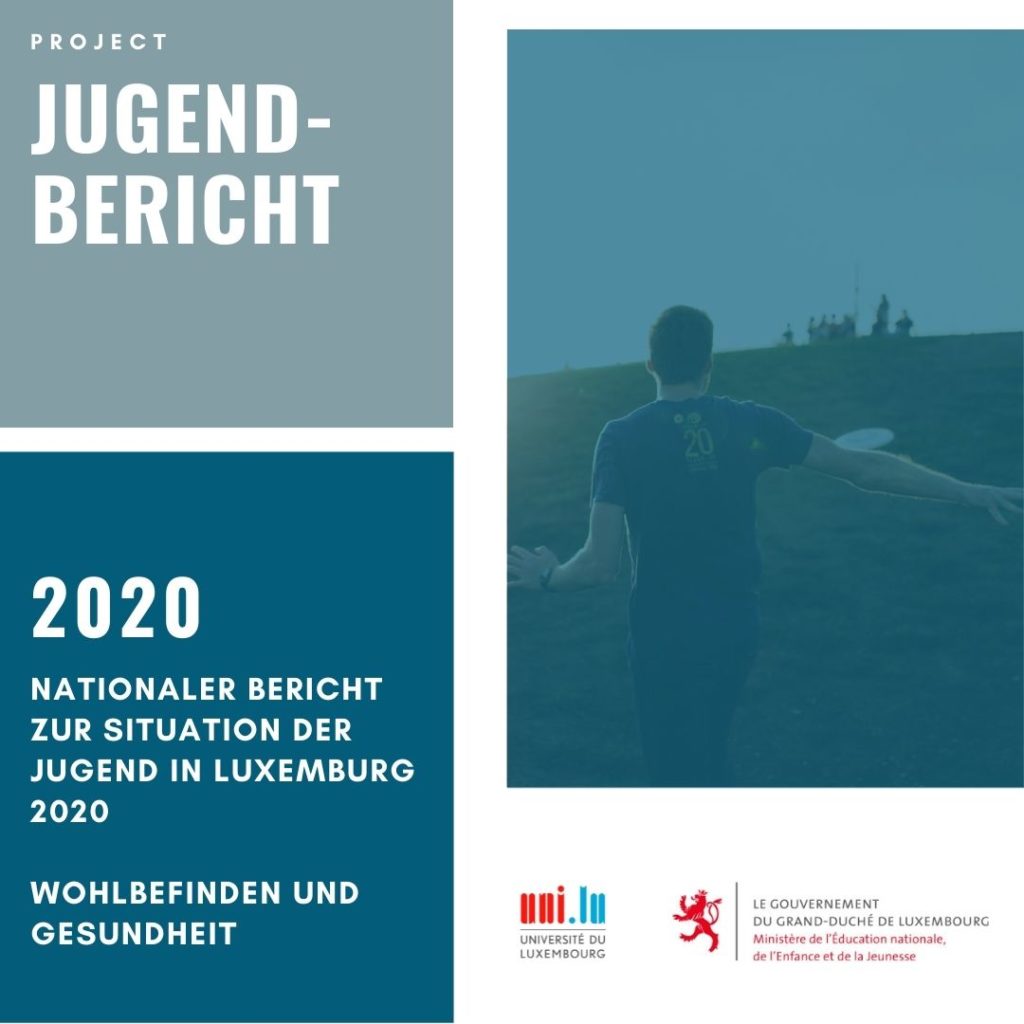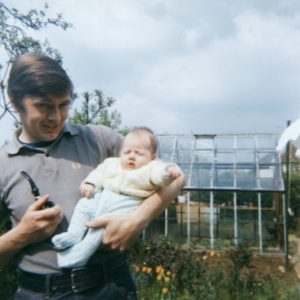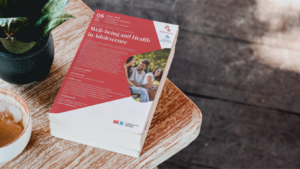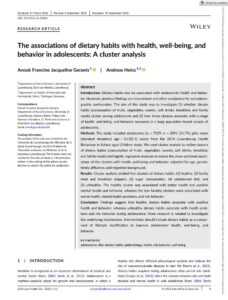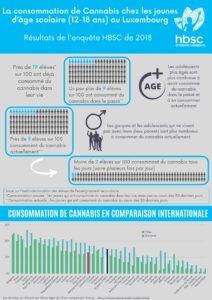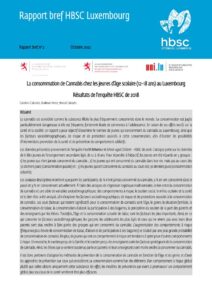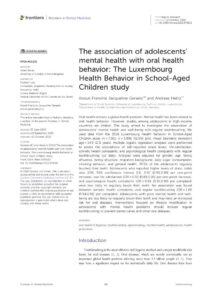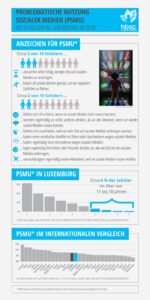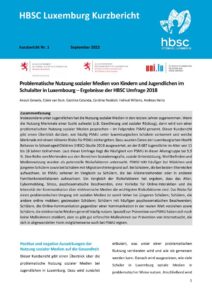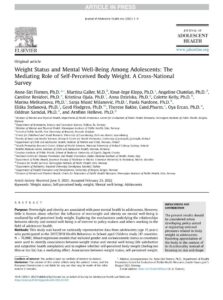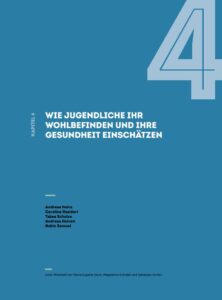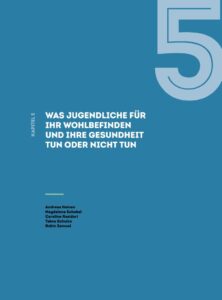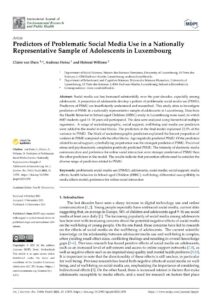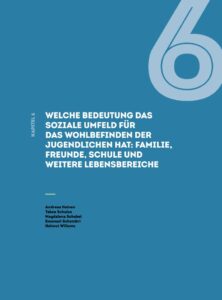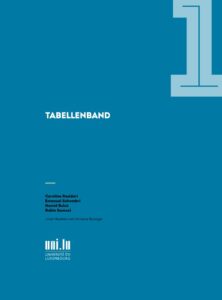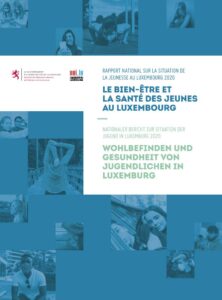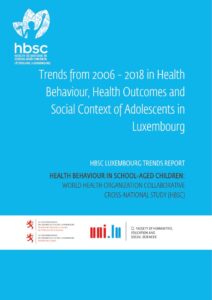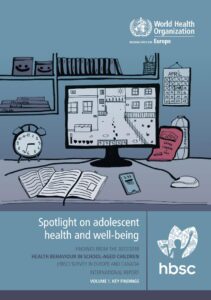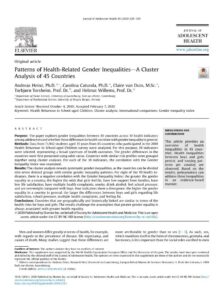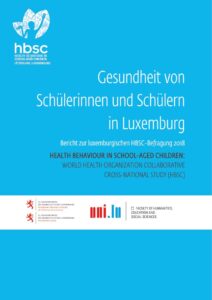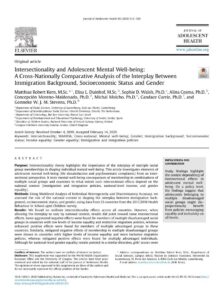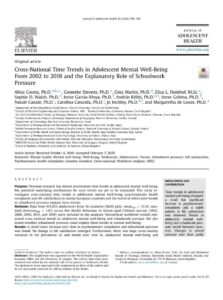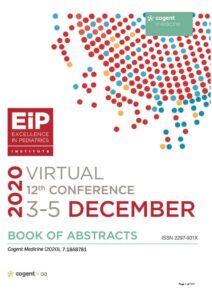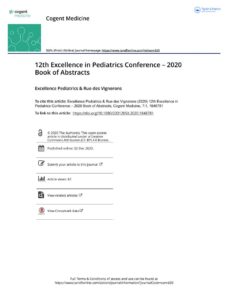Dr Andreas Heinz is an economist, Research Scientist and head of the Luxembourgish contribution to the WHO international partner study Health Behaviour in School-aged Children (HBSC) at the Centre for Childhood and Youth Research (CCY) at the University of Luxembourg.
HBSC Survey 2018
Health behavior of school-aged children
What is the state of health and well-being of young people in Luxembourg? To answer this question, over 8,000 schoolchildren are surveyed every four years. Among other things, they are asked how many of them smoke, how often they exercise, and how well they feel at school and at home. Since HBSC is a partner study of the WHO, the results can be compared with those from 50 countries in Europe, Asia and North America.
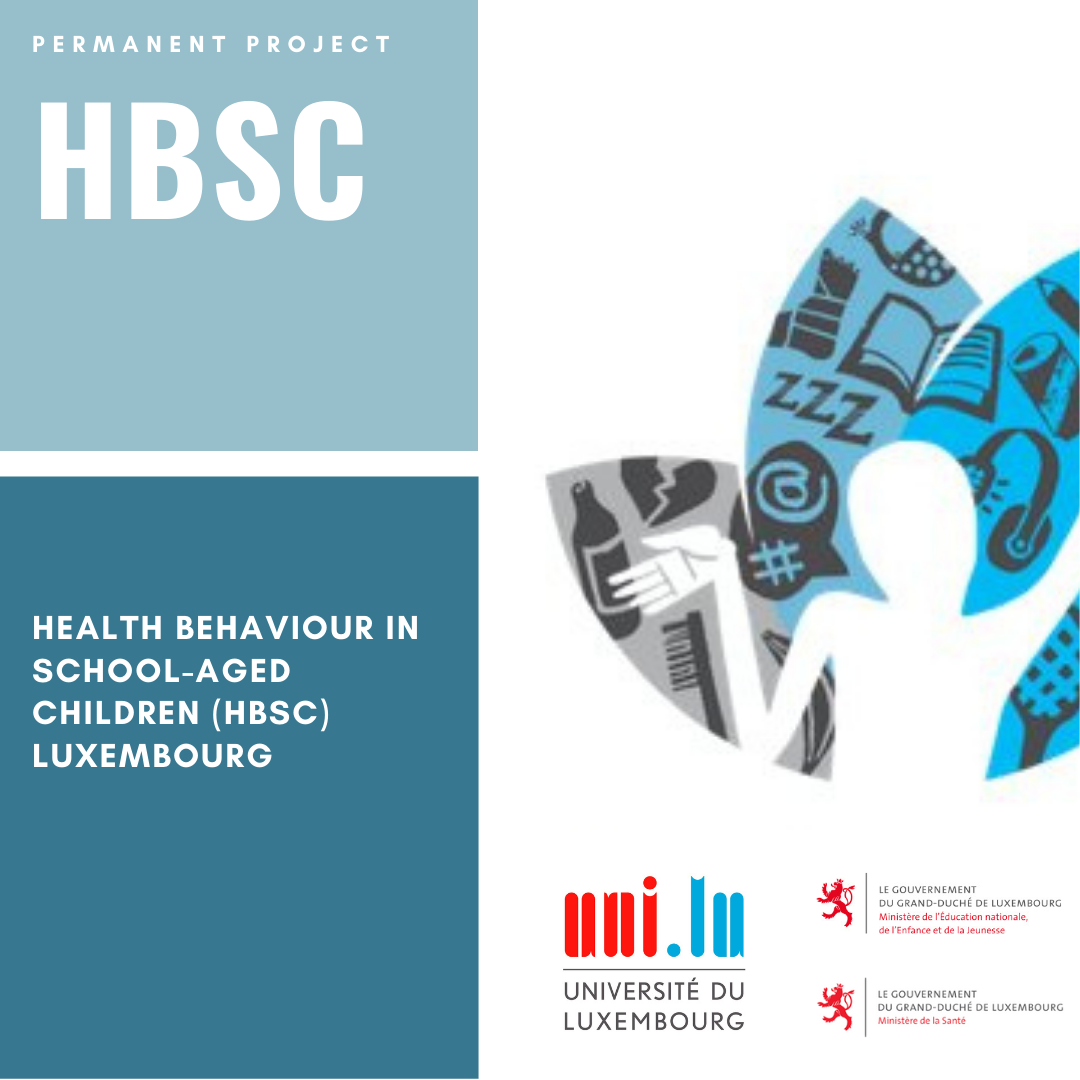
Jump to content
Health behaviors learned in adolescence determine adulthood
Few people associate adolescence with illness. Yet this period is central to the development of adolescent health and also to health policy. For example, the World Health Organization (WHO) points out that up to 50% of mental illnesses that persist into adulthood begin as early as age 14 (WHO 2012). In addition, young people often try out behaviors during this time that can affect health in the short and long term: For example, tobacco use, alcohol consumption, or harmful diets.
Influences on adolescents‘ health and well-being
The health and well-being of young people are not only determined by individual factors. The immediate social environment, such as peers, parents and teachers, also has an influence. In the wider social environment, place of residence and school play a significant role. Society and its order as a whole also influence the health and well-being of young people, for example in the form of the health care system.
HBSC –The international health survey of school-aged children
The international WHO partner study Health Behavior in School-aged Children therefore researches the social determinants of health and well-being of schoolchildren and informs the public about the results. To this end, surveys are conducted in school classes every four years – in more than 50 countries around the world in addition to Luxembourg. Researchers can thus track changes over time and examine differences between countries.
The 2018 HBSC survey in Luxembourg
In Luxembourg, we have been conducting HBSC since 2006 in line with the international surveys. In 2018, 8,687 students aged 11 to 18 took part in a survey in their school class. Topics that are surveyed in each survey are, for example, the consumption of alcohol and tobacco, nutrition and sports. The 2018 survey also looked in greater depth at the use of social media.
HBSC knowledge transfer
The research findings are incorporated into a wide range of publications, such as the national reports (including the 2018 HBSC Report, the 2020 Youth Report, as well as 2006-2018 HBSC Trends Report) or the international HBSC report Spotlight on adolescent health and well-being. Scientific articles as well as presentations at national and international conferences are further important publication strategies. Furthermore, the project is closely linked to the Youth Survey Luxembourg. Both surveys ask the same questions in different target groups. Thus, it is possible to make statements about adolescents and young adults aged 11 to 29.


